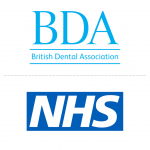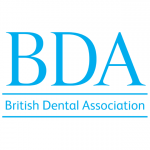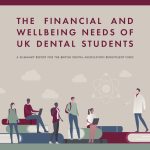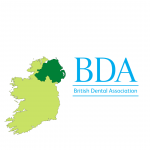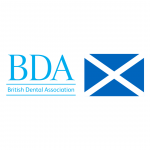Dentistry in Northern Ireland has taken another blow, as the profession’s representatives have labelled as ‘totally inadequate’ new funding arrangements for General Dental Services announced by the Department of Health this evening’.
A new Rebuilding Support Scheme will see a 25% enhancement apply to dental fees, as the Financial Support Scheme to mitigate the impact of COVID on dental practices is wound up from April. BDA says what has been imposed represents a downgraded offer from a 35% increase that had previously been put forward, owing to budget uncertainties. It also compares less favourably with an initial 70% enhancement that has been introduced in Scotland.
Following the toughest two years in dental history, BDA has said hopes that the extra costs in dental practice had been grasped by the Minister and his officials, and that an expected enhancement would enable practices under financial pressure to start to rebuild the service, have been left completely shattered. Instead, practitioners have been left deeply disappointed by the Department of Health’s decision, and worried for the future of the service, particularly those practitioners who are most NHS committed.
Two years of providing care for unregistered patients, providing out of hours cover at weekends and relying on short-term funding has caused a collapse of morale within the profession. This latest scheme is another short-term stop-gap that offers practitioners little certainty, at a time when there is a crisis of confidence continuing to offer Health Service dentistry.
While the so-called Rebuilding Support Scheme (RSS) is intended to increase and incentivise activity by enhancing fees – what has been offered will make it practically impossible for health service dentists to balance their books, pay their staff, or provide a safe service.
News comes on the very day dentists gathered at Stormont to launch the BDA’s manifesto for the coming Assembly elections.
Ciara Gallagher, Chair of the Northern Ireland Dental Practice Committee (NIDPC), said: “We have told the Department and HSCB in no uncertain terms what is required to provide safe, affordable health service dentistry – but years of real-terms pay cuts, combined with the massive impact of the pandemic, and now soaring costs have brought us to crisis point.
“Health Service dentistry simply cannot continue on this downward trajectory, where what is paid bears no correlation with the actual costs to deliver the service. The latest DoH offer simply does nothing to address those real costs of delivering dental care, or provide anything by way of future certainty. Practitioners have had enough. Unless this is remedied, we are likely to face a possible exodus of dentists away from health service dentistry”.
“We were left bitterly disappointed when an initial offer of a 35% enhancement in fees was subsequently downgraded to 25%, and this despite papers from BDA outlining the crisis the sector is in, including a 40% reduction in dental earnings since 2008, costs soaring, and the continued impact of the pandemic.”
“This scheme is such that we simply cannot stand over it or support it – our members expect and deserve more. Our warnings to the Department have been clear in recent months – yet we feel strongly that our words have fallen on deaf ears.
“The profession has invested so much into ensuring NHS dentistry can emerge out of this pandemic, that patient care can continue, particularly for those who need it the most. On the very day that we urged Political Parties to commit to the rebuilding and reform of Health Service dentistry at our BDA Manifesto launch, any hopes we had that government was serious about moving forward on dentistry have been left shattered. And this short-term uncertainty will do nothing to help move new contract discussions along.
“We provided the Department with a carefully thought-through counter offer that clearly detailed what was required for a reasoned, sustainable, safe service. We are disappointed this has been rejected, and that the Department has steam rollered ahead with its enhancements which fails to adequately reward or properly incentivise ailing practices.
“By this approach, we are left wondering if it is only the dental profession that values safeguarding NHS dental care for patients.
“In order to maintain viable businesses, dental practice owners increasingly feel they are being pushed towards private practice. They will have no alternative. Associates – who often do the bulk of health service dentistry –will increasingly be driven into private practice, because working in the Health Service means their salaries will not reflect the years of learning, the cost of living or the university fees that need repaid.
“Stress levels have soared. Morale has reached an all-time low. And we have a crisis of confidence among GDPs in Health Service dentistry having a viable future. It isn’t practitioners wanting to step away from their NHS patients, this is government pushing practitioners out. We simply cannot endorse a return back to the pre-pandemic treadmill of high volume, and low /loss-making fees with the promise of jam tomorrow.
“At the very point in time when a new package should have been about incentivising GDPs to increase Health Service treatments and get through high patient backlogs, this scheme falls flat.
“We had high hopes that our solutions-based approach to negotiations would lead to a fair outcome for both patients and practitioners. Sadly, we are left dismayed.
“Reverting back to a situation where decisions are once again based solely around DoH budgetary constraints while ignoring the financial realities practitioners are facing, is repeating the mistakes of the past. It is for the Minister and his Department to explain to the public -and the profession -how this will help move dentistry forward at this critical juncture.
“Sadly, health service dentistry and patients in Northern Ireland are left today with nothing to smile about. More than ever, we urge all Political Parties to take action to salvage dental services now, and into the next Assembly mandate.”




